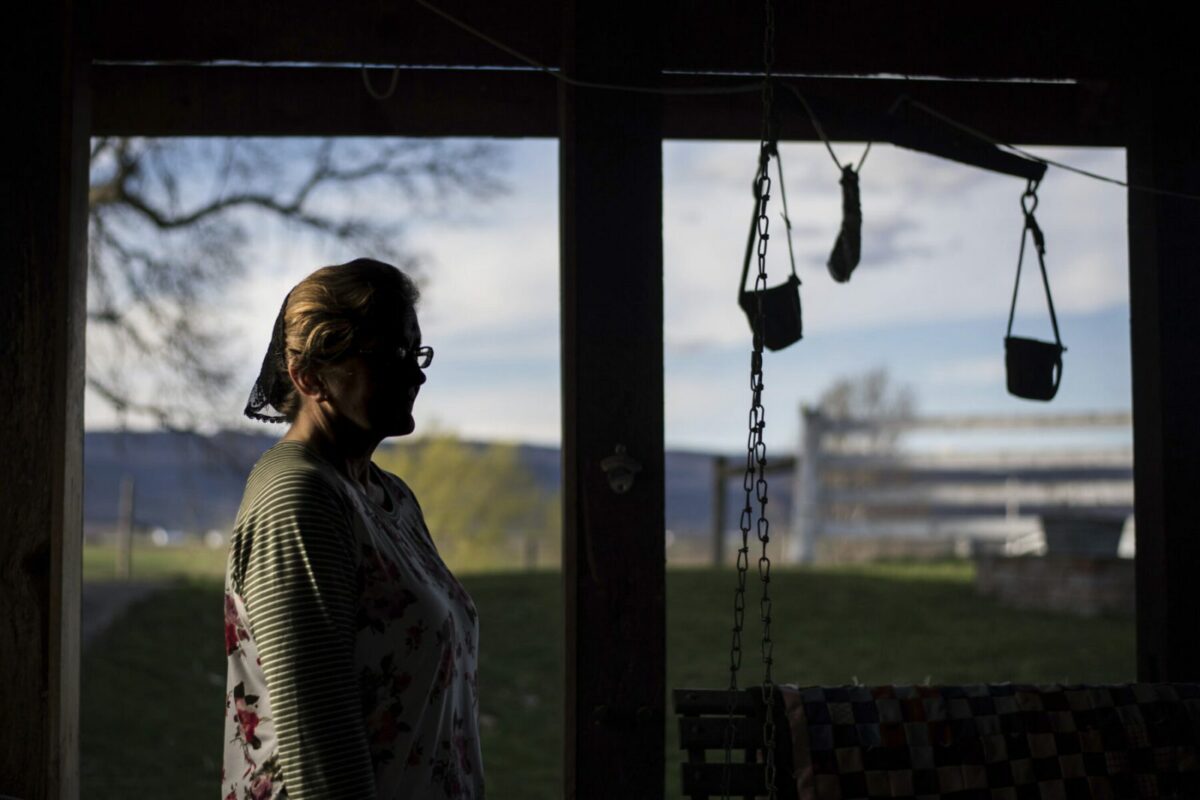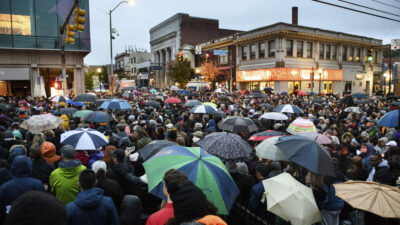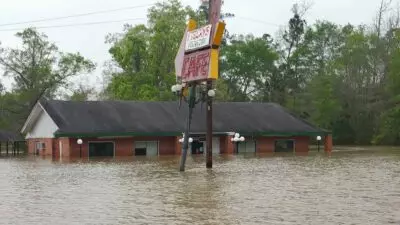In Season 2, Episode 6 of the Postindustrial Podcast, Stephanie Strasburg talks with host Carmen Gentile. Strasburg is a staff photographer and filmmaker with the Pittsburgh Post-Gazette. Her recent work includes an investigation on child sexual abuse in the Amish and Mennonite communities, for which she and her fellow reporters were named finalists for the Pulitzer Prize in local reporting and nominated for a Mid-Atlantic Emmy. She is also part of the Post-Gazette team that received the 2019 Pulitzer Prize for breaking news reporting for coverage of the Tree of Life synagogue massacre.

You do a really good job of documenting the postindustrial experience without falling prey to what we might call “poverty porn” in that, your images don’t dehumanize people who are going through a tough time. They seem to illustrate their humanity. That’s not easy to do. What draws you to these types of stories?
I’ve always been drawn to stories that I can spend a bit of time with and allow the viewer to see the complexity of the situation. When I go into a story, a lot of times it just seems like it’s not done. Like it’s, everything is way more complicated than that. And so it’s been a gift to be able to spend a longer amount of time, to be able to build relationships with people and get to know them and get to see their story unfold in a little bit longer stretch of time.
I think spending that time is important because we’re so often more than just the one issue that gets explored in a typical daily news story. And ….I think that there’s more obstacles to doing that now and we kind of have to change as an industry to be able to support it. But there’s also more and more grants out there. So as the nature of the industry changes, so will the funding model for these kinds of projects.
[ai_playlist id=”21061″]
Can you tell our listeners what you were documenting in the Amish and Mennonite community?
When we started to look into it, there were things that were similar to the Catholic church in terms of the abuse of power. But there are also things in the structure of the religion that made it very different. And once we peeled back the first layer of the onion on that…..all of this stuff just started to pour out. And what was challenging about it is they’re communities that try to separate themselves often from what they call the English world.
We were able to connect with a group of people who had actually left the Mennonite church because of these issues, issues of sexual abuse, especially childhood sexual abuse in these communities.
We met with them in a coffee shop in Central Pennsylvania just to see what was going on. We sat with them for what we thought would be an hour conversation. And probably four hours later, we kind of stumbled out of the coffee shop. Bleary-eyed like we had just been hit with a fire hose of the most intense stories. And what was amazing was how candid people were.
And I think it was because nobody was listening to them. And part of the reason that they had left the church was because they were being shunned for bringing these issues up. You aren’t supposed to talk about sex and sexuality.

For the rest of the conversation, click here
To read Coverings, an investigation on Amish and Mennonite communities, click here.







